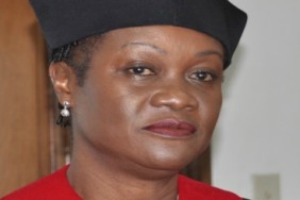Bong County: EPA, UNDP wrap up environmental governance workshop

By Edwin N. Khakie
Gbarnga, Bong County – June 9, 2025 – The Environmental Protection Agency of Liberia (EPA), with support from the United Nations Development Programme (UNDP) through its Energy and Environment Project, has successfully concluded a two-day environmental governance workshop aimed at building local capacity to address pressing environmental challenges in Liberia.
The workshop, held from June 6–7 in Gbarnga, Bong County, brought together members of the County Environment Committees from both Bong and Gbarpolu Counties under the theme: “Environment Protection Management: Taking Environmental Governance to the People.”
Designed as part of the EPA’s ongoing decentralization efforts, the workshop focused on equipping local stakeholders with the tools, knowledge, and strategies needed to respond to environmental threats such as illegal mining, pollution, and climate change. The initiative is a cornerstone of the EPA’s strategy to strengthen community-level enforcement and promote grassroots participation in environmental decision-making.
The EPA’s decentralization plan, launched in 2024 as part of its 100-day deliverables, has already seen the establishment of regional EPA offices in Grand Cape Mount, Gbarpolu, Montserrado, and Rivercess Counties. According to officials, new offices are expected to open in Grand Kru and River Gee Counties this year.
EPA Executive Director, Dr. Emmanuel Urey Yarkpawolo, addressed participants at the workshop’s opening, calling on all Liberians to take an active role in environmental protection. “Solving Liberia’s environmental challenges is not a one-man job. Environmental issues are the concern of every Liberian. We must all take ownership,” Dr. Yarkpawolo said.
He attributed many of the country’s environmental problems to harmful human activities, particularly illegal mining, which he said has been polluting rivers and damaging ecosystems. “This is not just a national crisis—it is a global concern. What we are witnessing is climate change in real time,” he emphasized.
Dr. Yarkpawolo explained that the EPA’s decentralization push aims to ensure rapid and localized responses to environmental emergencies. “When something happens in a community, people on the ground should be able to act quickly. That’s why building local capacity is so important,” he added.
Bong County Superintendent Madam Hawa Loleyah Norris welcomed participants to the county and expressed her administration’s full support for the EPA’s efforts. “In Bong, we take environmental matters seriously. Our doors remain open to the EPA and all partners working to protect our environment,” she said.
Also in attendance was Gbarpolu County Senator Botoe Kanneh, who lauded the EPA and UNDP for prioritizing local engagement. She raised concerns about the severe environmental damage caused by illegal mining in her county. “Too many rivers in Gbarpolu are being destroyed. We need stronger action and more support,” she pleaded. She also assured the EPA of her caucus’s commitment to collaborating on future environmental initiatives.
Representing the UNDP, Ms. Josephine Mongor, Finance and Administrative Associate, praised the EPA’s leadership in expanding environmental governance across Liberia. “This is not just a reform—it is a bold commitment to inclusive environmental management,” Mongor said.
She applauded the involvement of women, youth, traditional leaders, and local authorities in the workshop, noting that such inclusivity is essential for lasting progress. “Environmental challenges affect all of us. The best solutions come from working together as communities, institutions, and partners,” she added.
Mongor reaffirmed UNDP’s continued support for the EPA’s decentralization program and the broader mission of sustainable development in Liberia.
As the workshop concluded, participants expressed confidence in their ability to return to their respective counties better equipped to address environmental issues. The EPA emphasized that the establishment and training of County Environment Committees are critical steps toward enforcing environmental laws and raising public awareness at the local level.
The agency reiterated its commitment to ensuring that all 15 counties in Liberia are empowered to manage natural resources responsibly and respond proactively to environmental challenges. “We are committed to building a cleaner, safer, and more resilient Liberia for future generations,” said Dr. Yarkpawolo.
The conclusion of the workshop marks another milestone in Liberia’s environmental journey—one that increasingly empowers and holds local communities accountable for their actions.



















